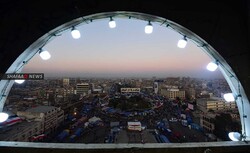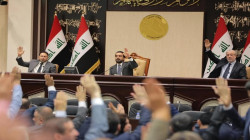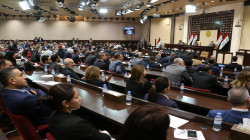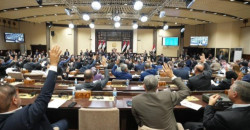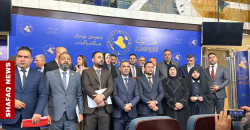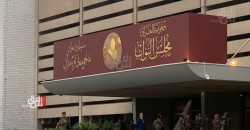The price of a vacant speaker: Iraq's ministers in the crosshairs
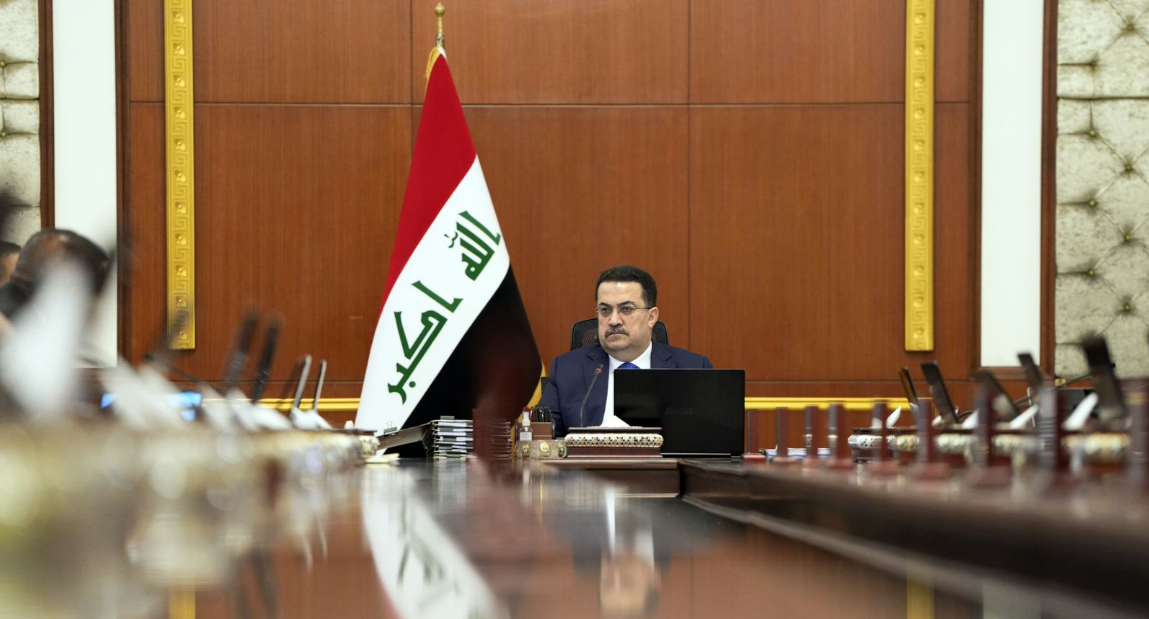
Shafaq News/ Iraqi lawmakers are preparing to question key ministers in Prime Minister Mohammed Shia al-Sudani’s government, including the oil and communications ministers, amid concerns over the performance of the current parliament, which many see as having lost its oversight function.
The lawmakers have emphasized the need to select a new parliament speaker to proceed with these inquiries, with some describing the current parliamentary line-up as one of the "weakest" in terms of legislative and oversight duties. Analysts argue that the parliament's lack of diversity has contributed to its poor performance.
Current Parliament’s Inactivity
Lawmaker Ibtisam al-Hilali noted that previous legislatures were much more active in holding ministers accountable and passing important legislation.
"In previous parliamentary cycles, we witnessed numerous ministerial interrogations, hearings, and even dismissals, in addition to the passing of many important laws," al-Hilali told Shafaq News Agency. "However, the current session has failed to enact laws as needed. So far, roughly 15 laws have been passed, while many critical issues concerning the Iraqi people remain unresolved."
Regarding upcoming inquiry sessions, al-Hilali explained that while signatures have been collected to initiate the process, the absence of a sitting parliamentary speaker has stalled the proceedings.
"The lack of a parliamentary speaker has played a significant role in preventing these interrogations from moving forward," she said. "As soon as a new speaker is elected, there will be numerous questioning sessions, particularly concerning agriculture, industry, and investment."
A Vacant Speaker's Seat
Lawmaker Hussein al-Battat, from the State of Law coalition, echoed al-Hilali's concerns, stressing that the vacant speaker's seat has hampered the parliament’s ability to function, particularly in overseeing ministers.
"The absence of a parliamentary speaker during this critical period is deeply concerning, as the position is a crucial entitlement for a key component of Iraq’s political process," al-Battat told Shafaq News Agency. "The ongoing disagreements between political blocs over this position have cast a shadow over the council's work and its ability to move forward with questioning ministers."
He pointed to several critical laws that have yet to be passed due to these disputes, including the General Amnesty Law, Personal Status Law, and pension reforms for the Popular Mobilization Forces.
The State of Law coalition has gathered more than 60 signatures for a questioning session targeting the oil minister, while efforts are also underway to summon the communications minister and heads of several government agencies. Al-Battat suggested that a series of hearings and interrogations would take place in the near future.
"There is an urgent need to reshuffle the current cabinet," he said. "The prime minister has been notified about the necessity of a cabinet reshuffle. Ignoring underperforming ministers would be a serious mistake for Iraq’s political process."
Parliament’s Lack Of Diversity
Political analyst Ahmed al-Yasiri attributed the lack of parliamentary action to what he called a "single-color government," with the dominant blocs in parliament closely aligned with the ruling coalition.
"A one-color government usually has the full support of parliamentary blocs, so there is no real opposition," al-Yasiri said. "Independent members have been marginalized, and the exclusion of the Sadrist movement has turned parliament into a one-sided body."
He added that Sunni and Kurdish blocs have aligned themselves with the Shiite-dominated Coordination Framework, which now exerts the greatest influence in parliament.
"These blocs are now focused on consolidating the agreements they made when the government was formed," al-Yasiri explained. "No Sunni bloc aligned with the Coordination Framework would dare question a minister without facing pressure on other fronts."
This dynamic, he said, has effectively stifled opposition and prevented the necessary oversight of government performance.
"The lack of ministerial questioning is directly related to this one-color government and parliament, where there is no real opposition, and independents have been sidelined," al-Yasiri added. "Even independent MPs now fall under the orbit of the Coordination Framework, which controls much of Iraq’s political life."
Al-Yasiri described the current parliament and government as "minority-led," with neither diversity nor accountability.
"Philosophically, this government and this parliament are both minority entities," he said. "There is no competition or accountability, and the role of parliament is now weaker than that of the government."
He noted the overall weakness in Iraq’s political system, where no substantial political projects are in place. This vacuum has led some blocs to revive old, divisive issues such as personal status laws.
"The current parliamentary cycle is the weakest in terms of performance, attendance, and implementation," al-Yasiri concluded.
In a televised speech on Sunday, Prime Minister al-Sudani urged political factions to "act responsibly and support the government" and called on them to swiftly appoint a new parliamentary speaker to facilitate a cabinet reshuffle.
